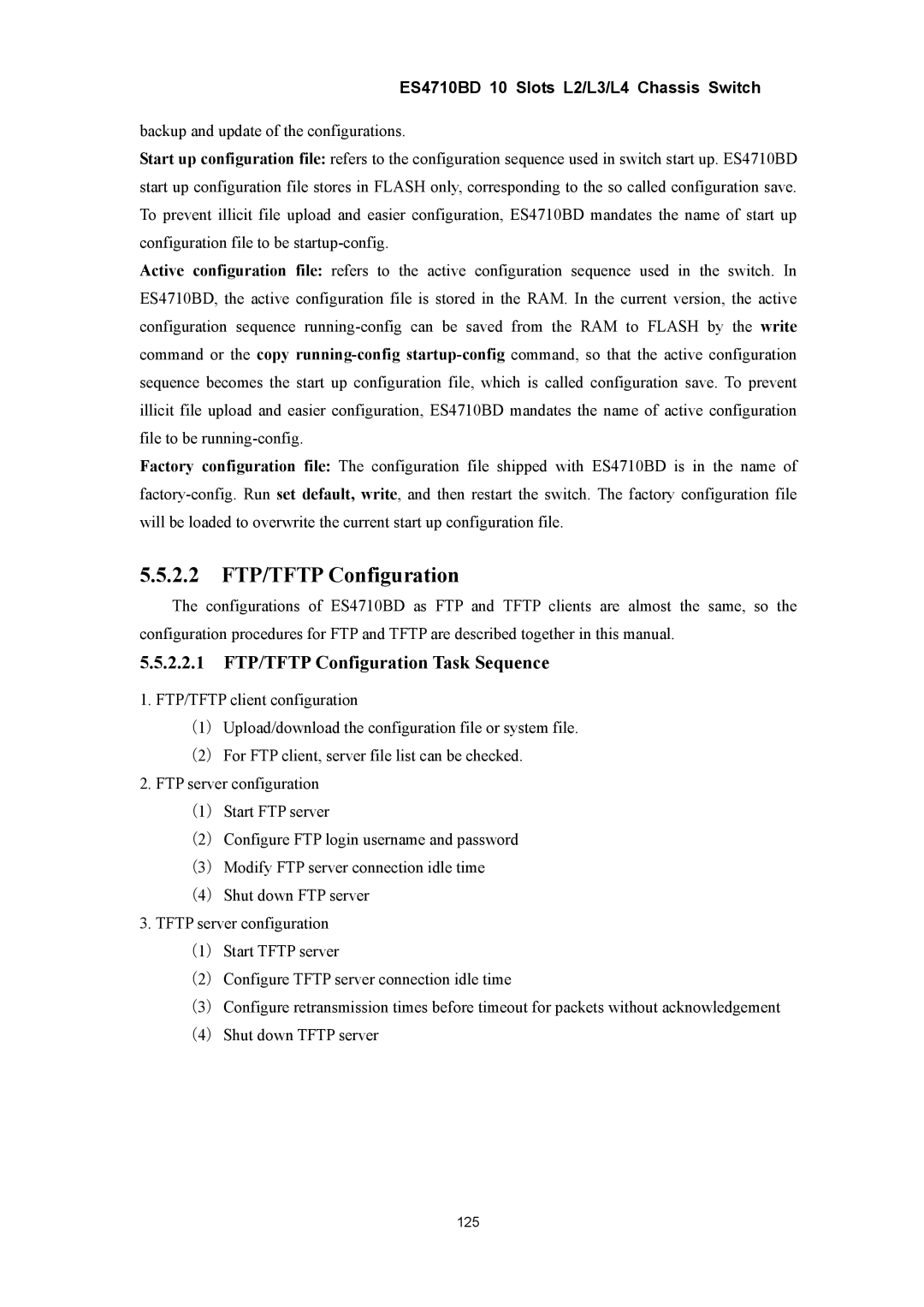ES4710BD 10 Slots L2/L3/L4 Chassis Switch
backup and update of the configurations.
Start up configuration file: refers to the configuration sequence used in switch start up. ES4710BD start up configuration file stores in FLASH only, corresponding to the so called configuration save. To prevent illicit file upload and easier configuration, ES4710BD mandates the name of start up configuration file to be
Active configuration file: refers to the active configuration sequence used in the switch. In ES4710BD, the active configuration file is stored in the RAM. In the current version, the active configuration sequence
Factory configuration file: The configuration file shipped with ES4710BD is in the name of
5.5.2.2FTP/TFTP Configuration
The configurations of ES4710BD as FTP and TFTP clients are almost the same, so the configuration procedures for FTP and TFTP are described together in this manual.
5.5.2.2.1FTP/TFTP Configuration Task Sequence
1. FTP/TFTP client configuration
(1)Upload/download the configuration file or system file.
(2)For FTP client, server file list can be checked.
2.FTP server configuration (1)Start FTP server
(2)Configure FTP login username and password
(3)Modify FTP server connection idle time
(4)Shut down FTP server
3.TFTP server configuration
(1)Start TFTP server
(2)Configure TFTP server connection idle time
(3)Configure retransmission times before timeout for packets without acknowledgement
(4)Shut down TFTP server
125
